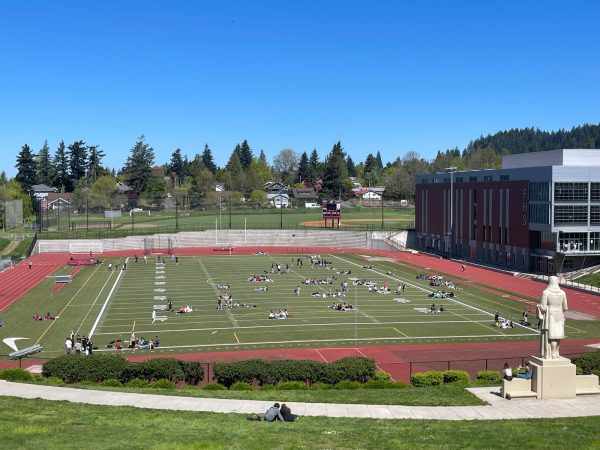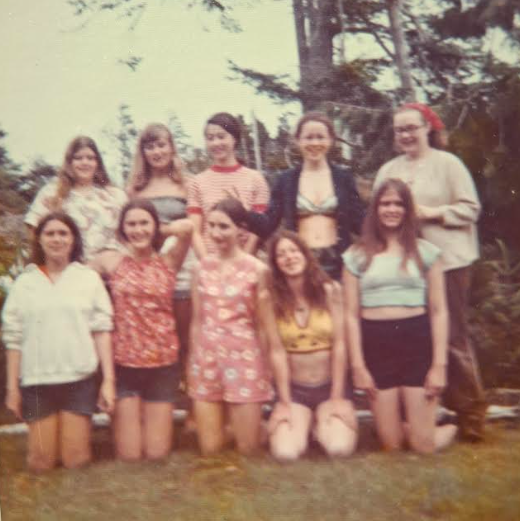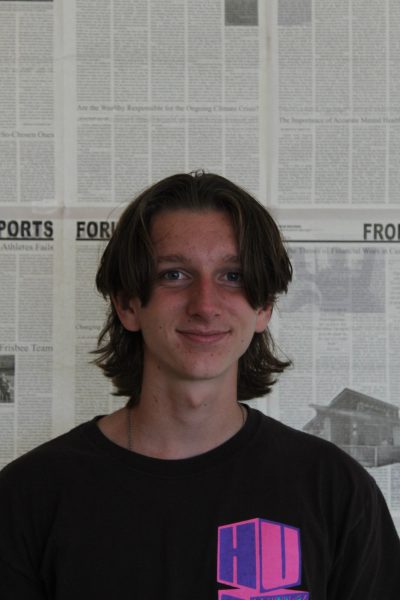
We’ve all seen the movies and we all know the stereotypes; between the jocks, nerds, theater kids, art kids, and many other social groups, high school proves to be a place of great social diversity. It’s a place where the clique that you identify with can determine where you sit, how you act, who you’re friends with and how you are perceived. But is this really true? Are these stereotypes completely fabricated, or are the tropes Hollywood projects based in reality? Films from the early 2000s such as “Mean Girls” are a good example of films that capture and highlight the unique social structure of high school. They very much perpetuate these stereotypes, and maintain an extreme degree of popularity. “Mean Girls” the musical was even performed by Franklin’s theater department in November of 2024. For a story to stay relevant for twenty years after its release, it must hold some cultural significance or truth. But how far does this truth really go? Who better to ask about this subject than Franklin’s very own students!
Continuing with the focus on the arts, we start with the theater clique, one that comes with its fair share of judgments, truthful or not. Jasper Bohem, a senior in the theater program, said, “This clique in high school has felt really meaningful and like it can go somewhere.” Bohem advised, “If you have a clique or you’re trying to get into a new clique, bring your all and you’re gonna love it and get the most out of it.” Bohem also said that cliques stay very much the same: “They’re never gonna change… [and] there’s nothing wrong with that at all,” he said. As far as the stereotypes thrust upon the theater community, Bohem doesn’t tend to profile or pigeonhole. “I feel like especially here [at Franklin], there’s so much variety,” he said.
Of course when talking about Franklin’s art department, you can’t avoid our unique Video Production program, where students can express their creativity through filmmaking. Max Sonera, a proud member of the Video Production clique, described his friend group as “a group of people that cares a lot about what they do, but also has a lot of fun doing it.” Sonera, however, explained that he doesn’t belong just to the Video Production clique, clarifying, “I’m just friends with whoever I’m friends with.” When it comes to friends, Sonera said that he looks for “a good sense of humor, somebody who’s generally pretty intelligent.” Sonera was then interrupted by a student named Zane Slayton, who pushed him out of the way in the hallway during the interview. “Not that guy,” Sonera jokingly remarked.
Another clique that can’t go without recognition would be the sports enthusiasts, otherwise known as “jocks.” Otto Haecker, a varsity soccer player for Franklin, has been playing since he was five years old. When describing the Franklin team, Haecker said, “we’re a really good team, we were really competitive this year.” Despite the seriousness, he claims, “We know how to have fun.” Haecker said that although he and his teammates take the game seriously and are very competitive, “there’s always room for just laughing and messing around and having fun at practice.” Haecker also addressed some of the stereotypes that come with being a part of his clique. “A lot of people see sports kids and soccer kids as [jerks] … And you can see we take the game really seriously, but if you’d hang out with jocks you’ll [see] we just like to mess around a lot,” said Haecker.
“Band kids” are arguably stereotyped the most. Oscar Jones, a senior and an advanced band member, feels that some of these stereotypes can be true. “Band kids can be weird,” he explained. Jones said that despite their quirks, “they’re the most reliable people you’ll know.” Jones, while he does not believe in cliques in the traditional sense, admitted that “most of my friends are involved in performing arts in some way.” Jones advised freshman band kids who are somewhat newer to the group to “just shower, and talk about normal things just a little bit … Stereotypes aren’t all true, but they’re there for a reason.”
Max Bareilles, a self-proclaimed “nerd” as well as an enthusiast for computer sciences, also doesn’t claim to belong to any specific clique. “When it comes to being into technology and stuff like that, I wouldn’t say I’m in a group related to that,” Bareilles said. As for the stereotypes that come with his passion for coding and the intense course loads he takes on, Bareilles acknowledged the truth in them. “In terms of social awkwardness … I’d say that [stereotyping] kind of stems from a truth to an extent, there’s definitely a lot of introverted or overall different people.” However, he said that he finds the glasses typecast over the top. “I don’t think that makes much sense, although it is true that I wear glasses when I’m programming,” acknowledged Bareilles.
Stereotypes are never usually reliable, especially in high school, when they can become extremely prominent and ever evolving. It’s of course important to keep an open mind, while also staying true to yourself. Find your people and explore your interests, because that’s what will ultimately build a strong, loving community.


































